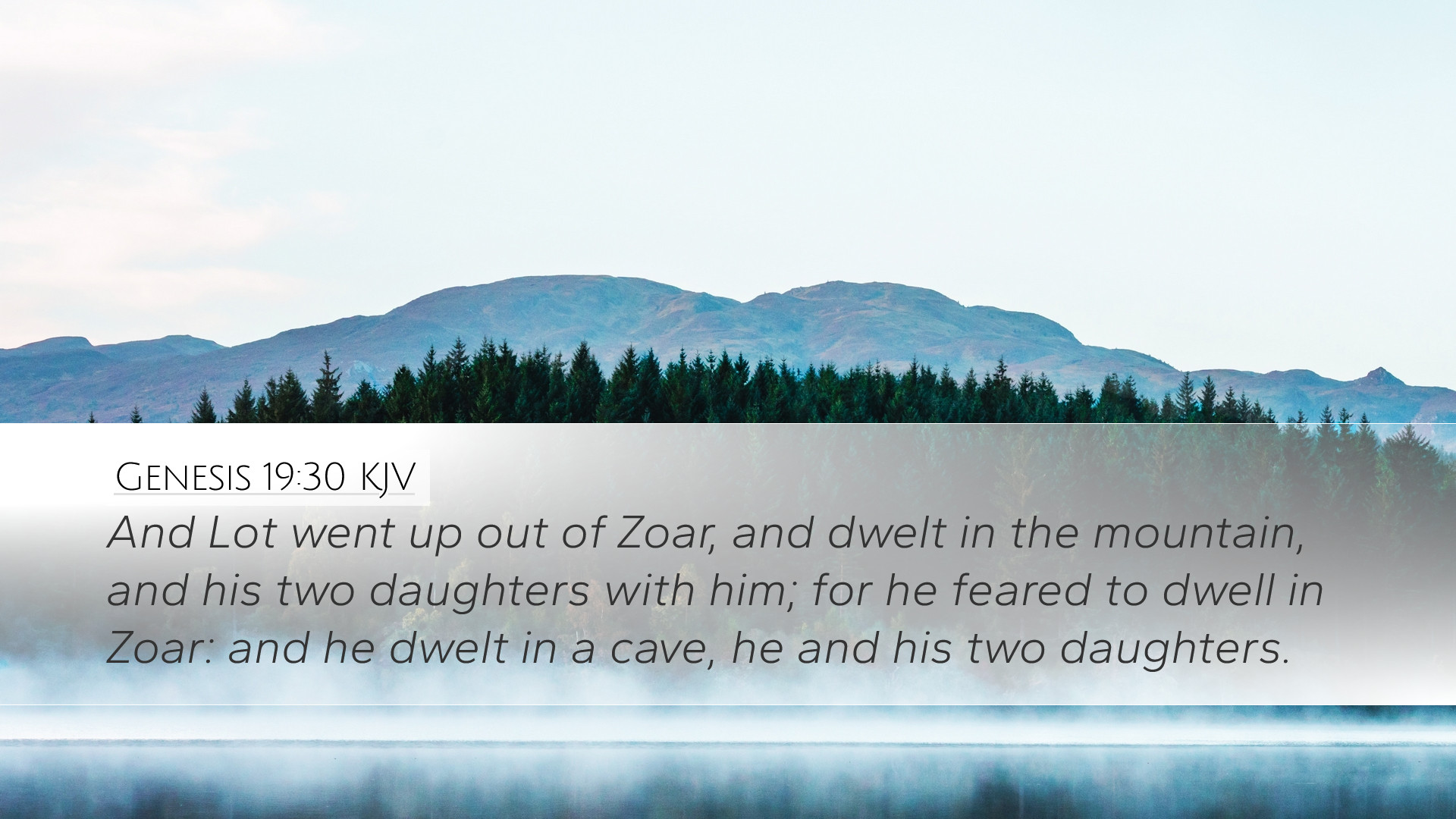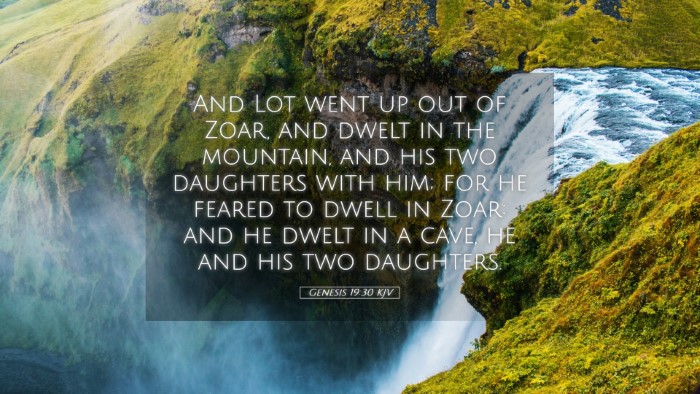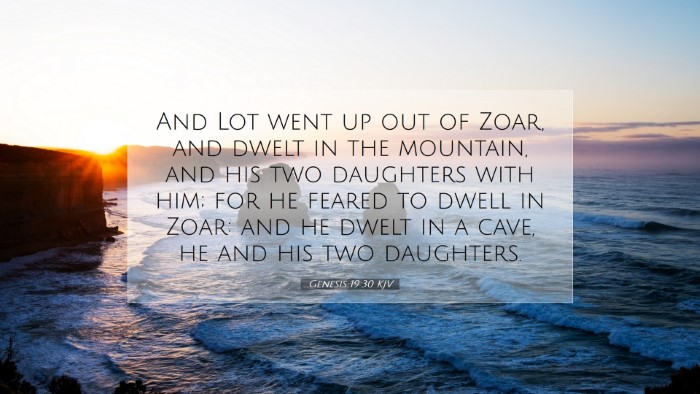Commentary on Genesis 19:30
Genesis 19:30 states: “And Lot went up out of Zoar, and dwelt in the mountain, and his two daughters with him; for he feared to dwell in Zoar: and he dwelt in a cave, he and his two daughters.” This verse serves as a poignant conclusion to the narrative surrounding Lot and Sodom's destruction. Below we explore insights from various public domain commentaries to provide a comprehensive understanding of this passage.
Contextual Background
Matthew Henry elucidates the significance of this moment following the divine judgment upon Sodom and Gomorrah. Lot's decision to abandon Zoar demonstrates a lack of faith in God’s provision and protection, revealing a trend in his life where he often chose fear over faith.
The Location: The Cave
This passage highlights Lot's retreat to a cave, symbolizing a physical and spiritual regression. Albert Barnes points out that caves often represent places of refuge in biblical literature, yet they also symbolize a departure from God’s intended blessings. Lot's choice to dwell in such a bleak setting illustrates a deeper moral and spiritual despair following the calamity of his previous home.
Fear and Isolation
Lot's fear drives him away from Zoar, a city he had initially sought refuge in after fleeing Sodom. Adam Clarke provides insight into the psychological state of Lot at this moment. He was the sole survivor of a city rife with sin, and now, in the isolation of a cave, he is haunted by the past destruction and loss of his family relations. Clarke emphasizes that Lot’s fear is not without reason; the trauma of witnessing the destruction, coupled with losing his wife to her disobedience, profoundly impacted him.
The Role of Lot's Daughters
The mention of Lot’s two daughters introduces critical themes of legacy and moral failure. Matthew Henry remarks that the daughters, like their father, are shaped by the catastrophic events that unfolded in Sodom. Their actions later in the chapter reveal a desperate attempt to preserve their lineage, which raises significant ethical questions about their decision-making process.
Theological Implications
Genesis 19:30 also invites reflection on the nature of God’s mercy and judgment. Albert Barnes discusses how Lot represents humanity's struggle—often torn between the desires of the flesh and the obligations of faithfulness to God. Despite his failings, Lot is saved, illustrating God's mercy even when His judgment is pronounced. This raises the question of covenant and the implications of living a life that straddles safety and moral ambiguity.
Lessons for Contemporary Believers
- The importance of faith over fear: Lot’s fear led him to isolate himself from the community, showcasing how fear can diminish our faith and lead to poor decisions.
- Understanding the aftermath of trauma: Believers are often called to examine their responses to trauma, acknowledging how past experiences can shape current and future choices.
- The weight of legacy: The actions of Lot’s daughters remind us of the responsibility we carry regarding the legacies we leave behind and how they influence the next generation.
Conclusion
In summarizing the insights from various commentaries, we uncover profound truths about fear, isolation, and legacy as depicted in Genesis 19:30. As pastors, students, theologians, and scholars engage with this text, may they find relevance in Lot's narrative, prompting them to consider their own responses to fear and the importance of living a life founded on faith. Through the lens of Lot’s experiences, we are encouraged to seek God diligently, trusting His guidance even in the darkest of caves.


